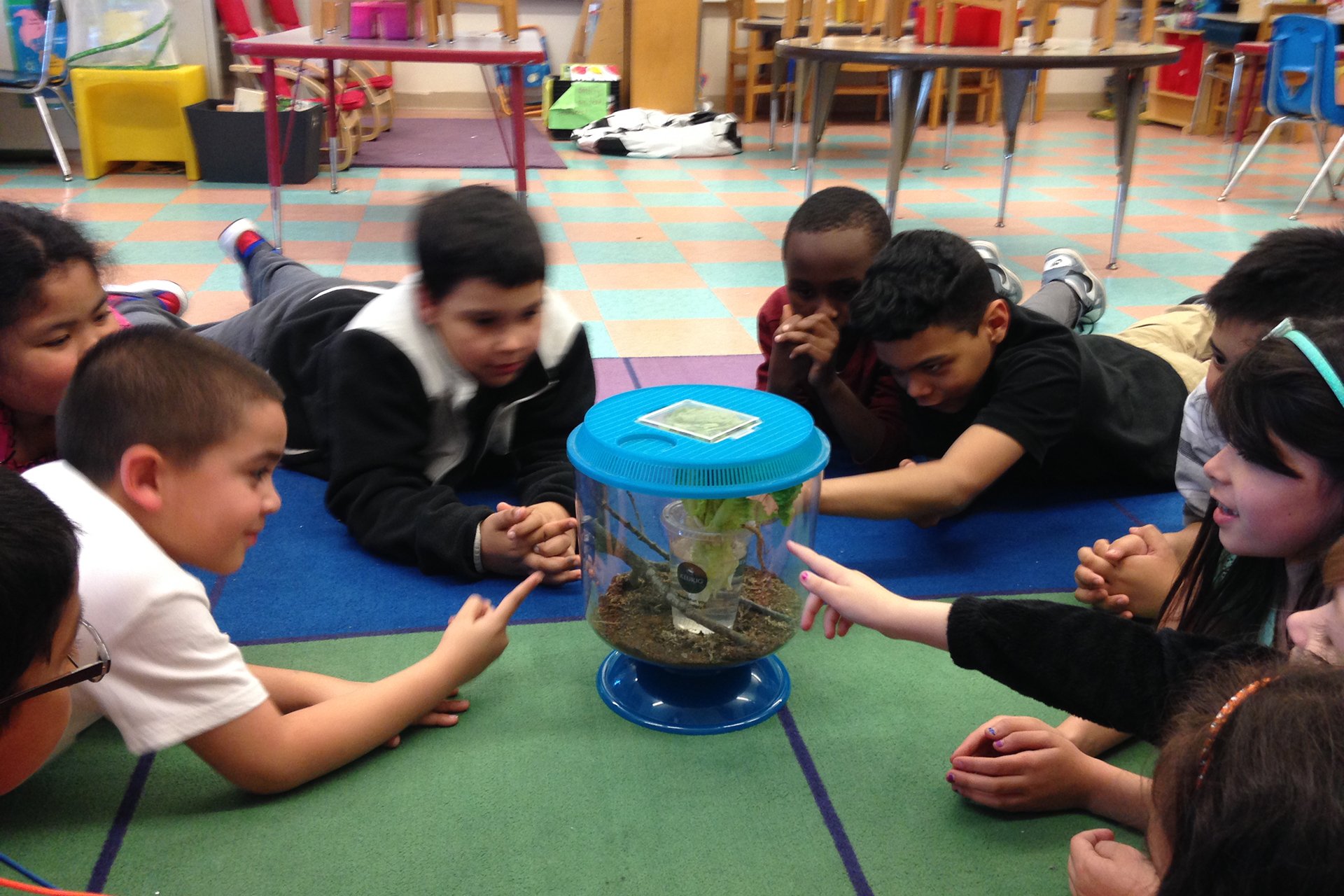For Schools & Teachers
At-Your-School Programs
Bring nature into your classroom with our select suite of At-Your-School programs. A Mass Audubon educator will come to your classroom ready to engage, educate, and inspire. With At-Your-School Programs, get all the benefits of a field trip without complicated logistics. Looking to go deeper? Check out our Program Series
Some examples of program themes include:
Schoolyard Ecology
Students explore the ecology of their schoolyard through hands-on activities that help develop core science practices and bring classroom content to life. Whether you have a parking lot surrounded by weeds, a soccer field, or a vernal pool in your schoolyard, we will make the most of it!
Classroom Labs
Give your science lab a nature-based spin. Through exciting, inquiry-based science activities, students will observe, investigate, classify, think critically, and draw conclusions about the natural world—all inside the classroom. Our educators bring tools and samples of pond water, soil, fungi, or other natural materials that provoke wonder and engage students in hands-on exploration.
Animal Ambassadors
Let the natural world come to you and bring core science concepts to life with a classroom visit from native wildlife and a Mass Audubon wildlife expert. Programs include live animal observations and interactive discussions that honor the questions and observations of students while weaving in relevant science content. Note: we work primarily with wildlife that cannot be released into the wild. Our animal availability will vary from region to region.
Find Programs Near You
At-Your-School programs are offered around the state and are organized directly between you and Mass Audubon staff to ensure we meet your specific class needs.
How to Search
Search the program catalog (start with “Location” if you aren’t sure what kind of program you are looking for) and then follow the instructions (who to email) in the program you select.
You can also check out your local sanctuary from the links below to see program options near you.
If you aren’t sure where to go, submit a school program inquiry and we’ll connect you with the right people. Submit a school program inquiry
Find School Programs
Wildlife sanctuaries across the state offer school programs at the sanctuary or at your school.
Find a sanctuary
Stay Connected with Education
Sign up to hear about opportunities to help your students connect with nature and environmental science.



